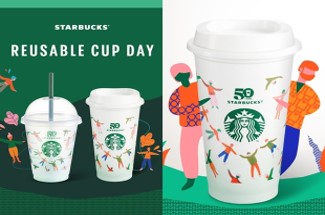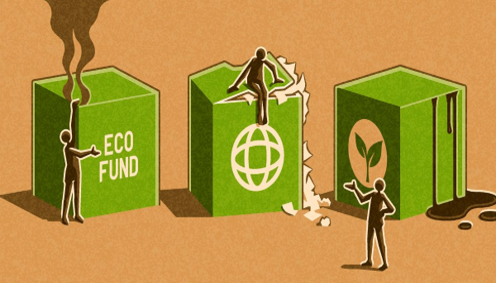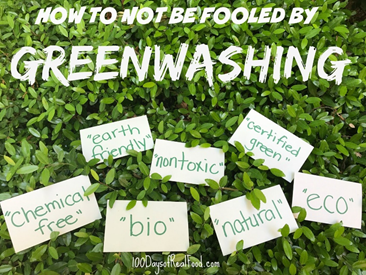Greenwashing is a combination of the word “green,” which means eco-friendly, and ”whitewashing,” which means to cover up the truth of. It refers to camouflage environmentalism that pretends to be eco-friendly but really is not. In the late 1980s, environmental activist Jay Westervelt visited Fiji Island. He saw an appeal saying at a hotel that said, "Please reuse towels to protect the environment," Inside the hotel room that destroys the island's environment, he coined the word Greenwashing. Recently, many companies are showing interest in ESG management and are conducting various campaigns to highlight their eco-friendly and social corporate image. In line with this trend, more and more companies engage in greenwashing by emphasizing only some processes, such as recycling, and not revealing or reducing environmental pollution problems caused by producing or selling products. Greenwashing is becoming a social problem through unconscionable marketing in which companies deceive consumers. Therefore, let's take a closer look at Greenwashing occurring both domestic and abroad.
Cases of Greenwashing

Recently, Starbucks' marketing has been embroiled in criticism of "Greenwashing." On October 28th, Starbucks held the "Reusable Cup Day" event to mark the 50th anniversary of Global Starbucks and World Coffee Day (October 1st). On "Reusable Cup Day," Starbucks put their drinks in a multi-use cup. As Starbucks has a huge fan base, many customers visited on this day, and a long procession took place in front of the stores. In addition, Starbucks' own app "Siren Order" was delayed due to many people waiting to order drinks. Starbucks officially announced that the "Reusable Cup Day" was held to deliver environmental protection messages along with the recommendation to use multi-use cups. However, the material of the cup provided by Starbucks was made of polypropylene which can be reused only about 20 times. Therefore, lots of plastic would be wasted because it is not a sustainable product. Eventually, "Reusable Cup Day" was stigmatized as greenwashing. Another example is the fashion company H&M, a renowned fast-fashion company. H&M tried to create an eco-friendly image by continuously airing advertisements called "making clothes from recycled plastic." H&M launched its own vegan clothing line called "Conscious" in 2019. Vegan clothing is a product that does not use animal leather, and clothes are made using recycled plastic and synthetic fibers. So, in order to be certified as "Conscious" among H&M's products, more than 50% of eco-friendly materials such as organic cotton or recycled polyester must be included. Consumers responded positively to eco-friendly products, while vegan jackets and fake leather products labeled "Conscious" quickly sold out. However, there was a loophole in H&M's "Conscious Collection." 50% of the collection line's jeans products are made of eco-friendly materials, but 50% are made of viscose. Viscose is a synthetic fiber, a toxic substance that severely pollutes water and the air, and is a fiber that is not suitable for eco-friendly clothing. Finally, Innisfree, a brand of AmorePacific, a domestic cosmetics company, was also criticized for Greenwashing. Innisfree emphasized that the container of the "Paper Bottle Limited Edition" product is eco-friendly by wrapping the bottle with paper. However, opening the paper wrapping, there was another plastic container inside. Although Innisfree promoted the edition as eco-friendly goods, Innisfree also participated in environmental destruction due to unnecessary paper use.
What Is the Problem of Greenwashing?

In fact, "greenwashing" is a huge problem as it is not easy for consumers to distinguish it from "green marketing" and it is difficult to regulate greenwashing legally. In Korea, greenwashing regulations focus on product display and advertising. The Ministry of Environment checks advertisements and product labeling related to the 'environment' of products and examines advertisements and product labeling other than the environment at the Fair-Trade Commission. Violation of the law can result in penalties as well as administrative sanctions such as fines. However, it is difficult to punish in marketing. The illegal application of green product certification or the term "environment" to product labeling or advertising can be legally punished. This is because fake eco-friendly marks can be used to deceive consumers by pretending to be eco-friendly. Also, the standard of marketing is ambiguous. The Starbucks Reusable Cup event was criticized by the public, but it did not receive legal punishment. Regarding the controversy over Starbucks’ greenwashing, a Starbucks official explained that it was intended to "deliver an eco-friendly message about sustainability value and recommendation to use multi-use cups.” Starbucks' marketing can certainly be regarded as greenwashing, but the term "eco-friendly" was not directly used in cups, and it was difficult to determine whether the marketing intentions of Starbucks were not eco-friendly. Regarding the greenwashing issue of companies, Ji Hyun-young, a lawyer for Duru Corporation, said, "The term eco-friendly that we commonly use is actually ambiguous." She added, "We need to create specific grounds for eco-friendliness or mark and advertise by limiting categories." In this respect, it seems that a clear law is needed to punish greenwashing.
Solution for Preventing Greenwashing

To prevent companies from doing greenwashing in marketing, the government should regulate companies to provide transparent information to consumers. Detergents and bath products that are widely used in eco-friendly marketing often use marks similar to official environmental certification marks to make consumers believe they are eco-friendly products. Therefore, measures should be taken more action to prevent consumers from being deceived by such greenwashing in marketing. In April, France enacted a law that could impose fines of up to 80% of false promotional campaigns. They also demanded corrective action on the media or billboards, or to post 30-day explanations on the company's website. Furthermore, consumer attention is also necessary to eliminate greenwashing. Green marketing considers the environment. On the other hand, Greenwashing destroys the environment. These can confuse consumers because both contain the word “Green.” However, unlike greenwashing, green marketing values the environment so that ecosystem destruction does not occur. Lawyer Ji advised, "We need to come up with various educational measures to help end-users recognize greenwashing." The government and civic organizations such as environmental organizations should make efforts to enhance consumers’ understanding of greenwashing. They must inform the definition and the reasons why greenwashing needs to be eradicated.
As eco-friendly has become a major keyword in marketing strategy, many companies, both foreign and domestic, do "greenwashing" marketing pretending to be for the environment. However, companies with high brand loyalty have no impact on profits even if they do "greenwashing." Greenwashing is an act of deceiving consumers and destroying the environment. To eliminate greenwashing, companies must keep their conscience, and government-level efforts and individual efforts are necessary. Companies, governments, and consumers should all pay attention to prevent greenwashing!

